 Tao Lin
Tao LinTao Lin, 23, is the author of the novel "Eeeee Eee Eeee" and the short story collection "Bed" both were released on May 15th by Melville House Publishing. His novel is an exploration into the depths of depression, obsession, boredom and confusion, while incorporating surreal events like dolphins clubbing Elijah Wood, and the frequent appearance of both bears and dolphins. The way he utilizes short and repetitive phrases to describe everyday actions and emphasize specific emotions is truly remarkable and addictive.
The word morality is virtually impossible to define because it means something different to everyone. We have laws on various levels, universal, spiritual, state, and local, but can morality be governed by laws? Can one person's version of morality be "better" than another person's version? In a recent interview with Ned Vizzini, posted on Bookslut, Tao Lin, explained his view on morality and suffering. Reading that interview left me wanting to know more about Tao Lin, to read his novel "Eeeee Eee Eeee", and to contact him myself and dig a little deeper. Since then I have done some research, read his amazing novel, and conducted this short interview with him.
Orange Alert (OA): Can you describe the feeling of walking into a major bookstore and seeing your books on the same selves that have held the very best in literature?
Tao Lin (TL): I walk in the store. I look at the books. I don't feel that much. If I already feel bad I still feel bad. If I already feel good I still feel good. I think the three things that make me feel bad or good, for more than a few minutes, are relationships with other human beings, existential despair having to do with laws of the universe, and chemical things like whether I've had coffee or not.
When I feel anything like pride it is always a self-conscious kind of pride that also makes me feel like an asshole. I only feel pride sarcastically. The same with "respect," "admiration," and other things like that.
OA: Who are some of your biggest literary influences?
TL: The Quick and The Dead by Joy Williams. Honored Guest by Joy Williams. A Green Light by Matthew Rohrer. Like Life by Lorrie Moore. Chilly Scenes of Winter by Ann Beattie. Good Morning, Midnight by Jean Rhys.
OA: As a fellow vegetarian, I find myself trying to justify my belief to others based on health issues and environmental issues, but I tend to avoid the morality of it all. However, there isn't a moment of those conversations when I don't want to scream, "because it is murder!". Can you explain the moral obligation behind your choice to be a vegan?
TL: My moral obligation is sarcastic. Morals are relative and arbitrary.
But this does not make me any different, in concrete reality, from a person with morals who is not sarcastic about their morals. Sarcasm cannot be touched in concrete reality, by a hand. If I sarcastically refrain from buying meat from a corporation it has the same effect in concrete reality as if a person who did not view morals as relative and arbitrary refrained from buying meat from a corporation. If I ever feel anger because someone else has different morals than I do, or if someone else is not being "moral" from my point of view, that (the anger) is a feeling that I resist.
I'm not sure if that causes me to be less effective (that I recognize the arbitrary nature of my morals) in doing what I think will reduce pain and suffering in the world. Maybe it makes me even more effective, since I resist anger and frustration, two things which alone have no effect on concrete reality. For example instead of doing angry metaphysical things like typing angry blog posts or talking shit angrily in a cafe or something I can do things in concrete reality to move money from corporations to independent venues, something that I think will reduce pain and suffering in the world.
I think this is as much as I know currently on June 3rd, 2007 about morality. I may have known more, or (more accurately, maybe) known different in the past. If I think for a long time I will have different conclusions maybe. For example what does it mean that I do things existentially in service of prolonging my own life, and not killing myself? Those are existential concerns, meaning those are assumed, that I will wake each day and eat and drink water and breath air. Does that mean that morals derived from that existential concern, to live, are less arbitrary than other morals? Right now I don't know, unless I define “morals” within a context of time and space, which requires that I block out information, since both time and space are infinite, or something.
OA: In a recent interview with Ned Vizzini, you stated that your life is structured by morals, ethics, and goals, can you expound upon those a little? What is your take on the morality of Americans in general?
TL: I think it is immoral, meaning it will cause more pain and suffering in the world, though in a very circuitous way, to generalize, unless generalizing in a sarcastic context. Like with friends who know you are joking and actually "talking shit" about generalizations.
Everyone's life is structured by goals. Even shellfish or like a bacteria. Like to drink water, to walk somewhere, to eat a cookie. To buy and eat a cookie. So I am not special in having goals. Everyone's life, I think, who is not insane, is structured by morals. I'm not even sure what the word "morals" means to other people. I don't use the word "morals" in "real life."
I say things like, "I'm only eating at Angelica Kitchen from now on because they sell 95% organic foods, are all vegan, and buy from local farms." I am not special. Other people say, "I'm only shopping at Wal-Mart from now on because they're cheap and I can afford wireless internet now," or something.
From my point of view I don't know, based on actualizations of those two sentences, who is reducing pain and suffering more, myself or the Wal-Mart shopper. I really don't know. Even if I reduce my context to humans and animals from now until 100 years from now, I cannot be completely sure that I am reducing pain and suffering more. Morals and goals, I think, for me, are mostly a way for me to live and know what to do, and not go insane.
OA: I love the idea of making appearances and doing your readings in a bearsuit. How did that idea come about, and has changed the way you read your text in any way?
TL: I was at Melville House's office in Hoboken. We were sitting at a table and someone talked about wearing a bearsuit. It was decided. I ordered a bearsuit from China off eBay. Melville House paid for it. I did one reading in the bearsuit and we made promotional youtube videos also. It hasn't changed the way I read my text.
OA: What is next for Tao Lin (i.e. readings, publications, etc.)?
TL: I am reading in four places in Seattle and California July 29 to August 1st. I am reading in Oakland for New Yipes! and Pegasus Bookstore. In Seattle at Elliott Bay Book Company and University Bookstore. And one other place in California.
I have other readings also in Baltimore and other places. Click here for list.
Melville House will publish my second poetry-collection, COGNITIVE-BEHAVIORAL THERAPY, in 2007 I think and my second novel the year after that.
Bonus Questions:
OA: Coffee? If yes, what is your favorite type of coffee and where is
your favorite place?
TL: I drink two iced coffees or iced double espressos most days. I only
buy coffee in Manhattan from THINK COFFEE on Mercer Street and 4th Street and sometimes from KAREN'S by Astor Place.
OA: Who are some of your favorite musicians currently? Who are some of your all-time favorites?
TL: I like Defiance, Ohio currently.
I like The Broadways, The Lawrence Arms, Mirah, Rilo Kiley, Strike
Force, The Weakerthans, Blacktop Cadence, Strung Out, Good Riddance, Propagandhi, Jawbreaker, Jets to Brazil, Leftover Crack, Hot Water Music, and other ones.
OA: Have you taken an interest in any of presidential candidates? What do you look for in a candidate?
TL: I haven't watched TV in a long time. I haven't read a newspaper in a long time except book sections of local papers. I don't have a TV. I don't buy newspapers. I don't know who the candidates are or what they want.
One vote is very small. It is like .00003 percent or something like that. I think money makes a larger difference in the world. Focusing on money, where you spend your money. Some people spend hundreds of hours debating and researching and going to rallies and wearing Al Gore pins or whatever. Then they go make their vote, their .00003 difference in who is president, then the president is pressured by corporations to make decisions, due to money, which is power, the power and influence inherent in the money people gave to corporations. (Though if they wear the pins they can maybe influence a few other people and make a .00009 difference or something).
Buying ten Cokes from McDonald’s or spending like $100 at Wendy's is probably the equivalent of voting one time for George W. Bush. Those numbers are not exactly correct, because they cannot be proven, but the concept is correct maybe.
For more information on Tao Lin visit his blog "Reader's of Depressing Books" and for information specifically related to "Eeeee Eee Eeee" and "Bed" visit this blog.
+by+Nick+Volkert).jpg)
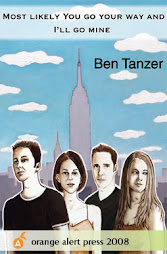

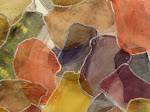









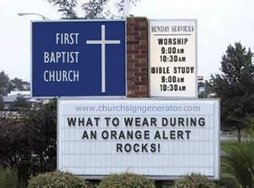


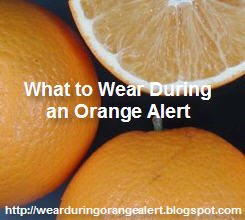


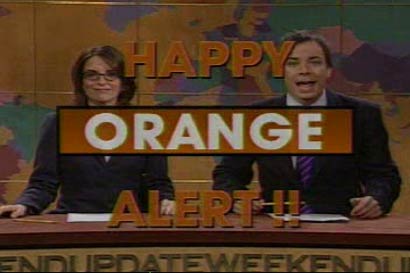


1 comment:
Oh great Ontologic
This is grace.
The particulars of a Tao Lin, a magnificent mix of choice
Nice.
Post a Comment